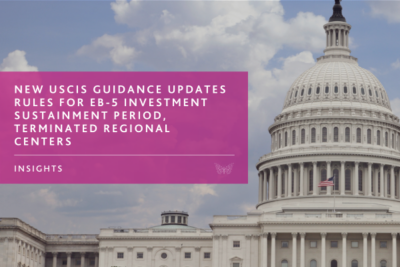College students in the U.S. have made one thing abundantly clear during the past year: despite the pandemic, they were not ready to pack up and move back home with mom and dad.
Demand for student housing has never been stronger. The fall 2022 school year kicked off with record high student housing occupancies of 94.1%, according to RealPage. The research firm tracks student housing at 175 universities in the U.S. Occupancies are 5.9% higher than a year ago and 1.3% higher than pre-pandemic levels in September 2019.
There are a number of factors contributing to the high occupancies and an overall positive outlook for the student housing property market. Students who took a gap year during the pandemic are now returning to their studies or are enrolling as first-time students. International students who were limited by travel restrictions also are returning to U.S. campuses. Student housing properties also benefited from a shift in demand as some students opted to live off-campus housing due to concerns about COVID-19 related risks or rules imposed by schools in on-campus dormitories related to quarantines, mask-wearing and vaccination requirements.
Properties closer to campus tend to generate higher occupancies. According to RealPage, those properties located within a mile of campus posted occupancies of 94.8%; those within 0.5 to 1 mile averaged 94.1% and those more than one mile from campus registered the lowest occupancies at 91.8%. However, 90% occupancy is typically considered to be a healthy level of full occupancy for the student housing sector, according to RealPage.
Robust performance is sparking a return of investor capital aimed at both acquisitions and new development. JLL reported $2.5 billion in investment sales during the first half of 2021, which is up from $1.7 billion the previous year. While that’s below the almost $3 billion spent in the first half of 2019, it shows returning momentum. Student housing also is attracting some big-name investors. For example, Blackstone Real Estate Income Trust announced a $784 million joint venture with Landmark Properties earlier this year to acquire a 5,400-bed student housing portfolio.
The student housing sector appears poised for more growth ahead. Despite declines in enrollment in 2019 and 2020, the National Multifamily Housing Council (NMHC) is predicting that college enrollment will increase by an average of 1.1% per year over the next decade. The NMHC also predicts that the student housing market will need to grow from a total of 8.5 million beds in 2020 to 9.2 million by 2031 – an increase of 734,000 beds. Most of that growth is expected to be concentrated around public four‐year universities. One of President Biden’s campaign goals was to make higher education more obtainable. Any new policies to support higher education could propel even more growth for the student housing sector.
Despite the positive outlook, it is important for investors to carefully analyze the local market dynamics that can influence investment opportunities, such as demographic trends and the business model of the individual university. Some university locations face potential downside risks, such as too much development and/or flat or declining enrollment.
CanAm Capital Partners (CACP) conducts careful due diligence and partners with a recognized industry leader. For example, CACP provided a $30 million mezzanine loan to an affiliate of Toll Brothers, Inc., one of the nation’s leading builders of luxury homes, through its Toll Brothers Campus Living division, for the construction of a 293-unit/1,086-bed Class A student housing property in Sweetwater, Florida. The purpose-built facility, which will be branded as “The Lapis,” is located directly adjacent to the main campus of Florida International University (FIU) in the greater Miami metro area and has been recognized as the fastest growing university in Florida. FIU’s enrollment has jumped 26.9% over the last decade. Proceeds will be used for the construction of the $150.6 million project, which is scheduled for completion in the third quarter of 2022.
![]() About CanAm Capital Partners (CACP)
About CanAm Capital Partners (CACP)
A private equity affiliate of CanAm Enterprises, CanAm Capital Partners (“CACP”) makes project-level capital investments in real estate and other assets. CACP’s investment strategy focuses on geographies and assets where CanAm has informational, operational, and other competitive advantages. CanAm identifies and partners with mid-sized and regional operators who are specialized by asset type and/or geography and have proven to be experts in their niche with the capacity and potential to successfully execute on their proposed projects, including multifamily apartments, commercial space, mixed-use buildings, hotels, and private equity funds. To date, CACP and its affiliates have funded $254 million of capital in almost 20 private equity real estate investments in major metropolitan areas of the U.S.
CanAm Enterprises, with over three decades of experience promoting immigration-linked investments in the US and Canada, has a demonstrated track record of success. With over 60 financed projects and $3 billion in raised EB-5 investments, CanAm has earned a reputation for credibility and trust. To date, CanAm has repaid more than $2.26 billion in EB-5 capital from over 4,530 families. CanAm manages several USCIS-designated regional centers that stretch across multiple states. For more information, please visit www.canamenterprises.com.





